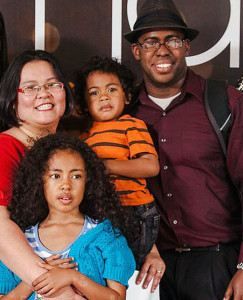The current episode of “On the media” discusses the recent breach of privacy at Facebook and the backlash against the company, which has led to calls to delete the application altogether (#deletefacebook). This is difficult for a variety of reasons. For many people, particular Facebook-based communities have become centrally important in their lives. An article in today’s Wall Street Journal describes leaving Facebook as “socially messy and psychologically fraught”. Many users have gotten so habituated to use of Facebook as a way to connect with friends and families that the idea of leaving would likely mean a loss of meaningful human contact. In some cases, I imagine it may lead to withdrawal-like reactions. There is also a practical problem leaving: People have used their Facebook login as a way to authenticate themselves to different online sites and services and will have to do a lot of new registrations and password resettings.
The problem for Facebook to solve is not an easy one: how to protect users’ privacy when their entire business model is based on being able to supply personal data to advertisers. In other words, how Facebook does business flies in the face of the company’s claim that they “put privacy first.” Somehow, Facebook needs to figure out how to be a viable company (i.e. to make money) while still keeping user data private. Facebook has become a public utility – in that role, being at the same time a profit machine is problematic.
If Facebook is additive, so are smartphones. Giving up or restricting smartphone use is a topic that’s been trending lately, as in the recent piece in The Atlantic, The Case for Locking Up Your Smartphone. It highlights the use of Yondr devices, small fabric pouches, which close with a proprietary lock that can be opened only with a Yondr-supplied gadget. They have been in use at concerts, as well as in hospitals and law courts, to prevent use of smartphones in those environments. The article also discusses education-related initiatives, such the proposal by French President Macron, to ban student phone use in public schools.
Banning phones from schools, to my mind, is misguided. I made that argument recently in a white paper for Cambridge University Press: Using mobile devices in the language classroom. I argue that for language learning in particular, having access to smartphones in class can bring significant benefits, both in terms of language learning resources and communicative/collaborative opportunities. Banning mobile devices can have undesirable results:
- A good number of students will likely continue to use their phones, but surreptitiously, possibly resulting in classroom conflict.
- Prohibiting phones leads students to view what happens in their language classroom as separate from their ‘real’ lives.
- Students don’t see their devices as potential learning tools, in particular for language study.
- Classroom instruction does not take advantage of the wealth of tools and resources available for language practice on mobile devices.
The white paper outlines a number of specific activities using smartphones that can enhance student learning in the classroom. I also point out that having a class full of distracted students may tell us something about the dynamics in the classroom:
In a classroom in which students are fully engaged in the learning at hand, there are likely to be fewer bored or distracted students. In communicative language learning, we expect students to be using the language actively as much as possible, collaborating and communicating among themselves, not listening to the teacher lecture. In that sense, introducing mobile devices as a new teaching and learning tool follows this instructional pattern, with the teacher as guide and facilitator.
I advise in the paper steps for creating a productive environment for mopbile use in the classroom: Discussing the issue with all stakeholders – teachers, students, administrators, families – is a recommended first step. Studies have shown that students are very much aware of the distraction factor and are amenable to finding and adhering to a workable set of guidelines.














